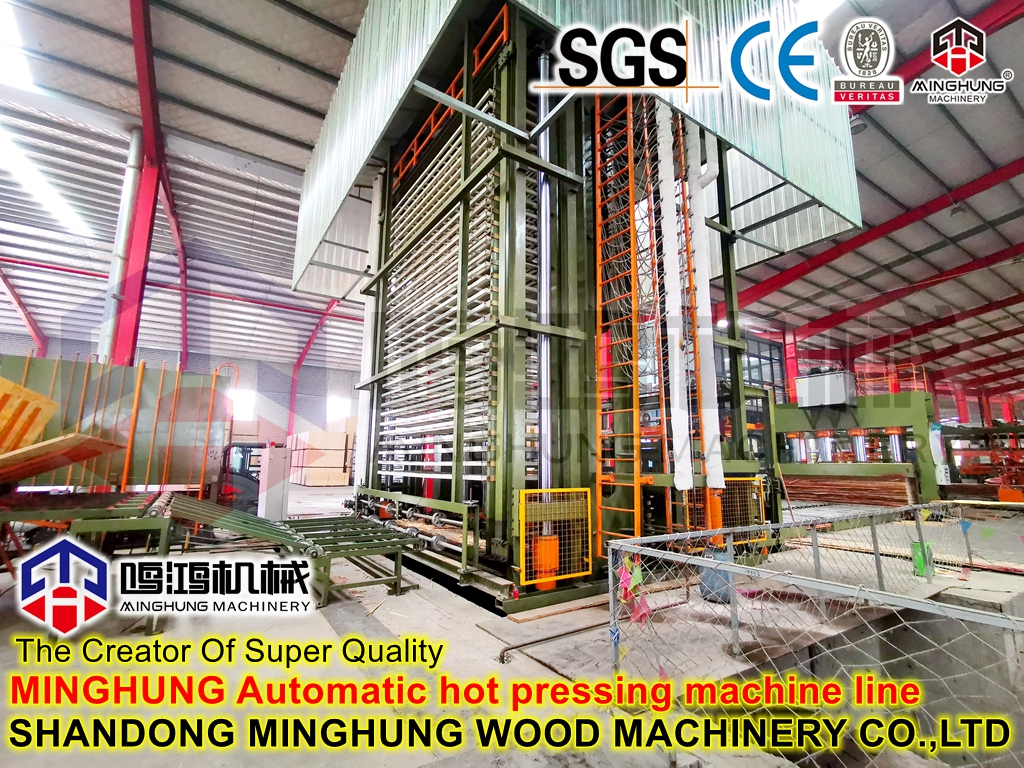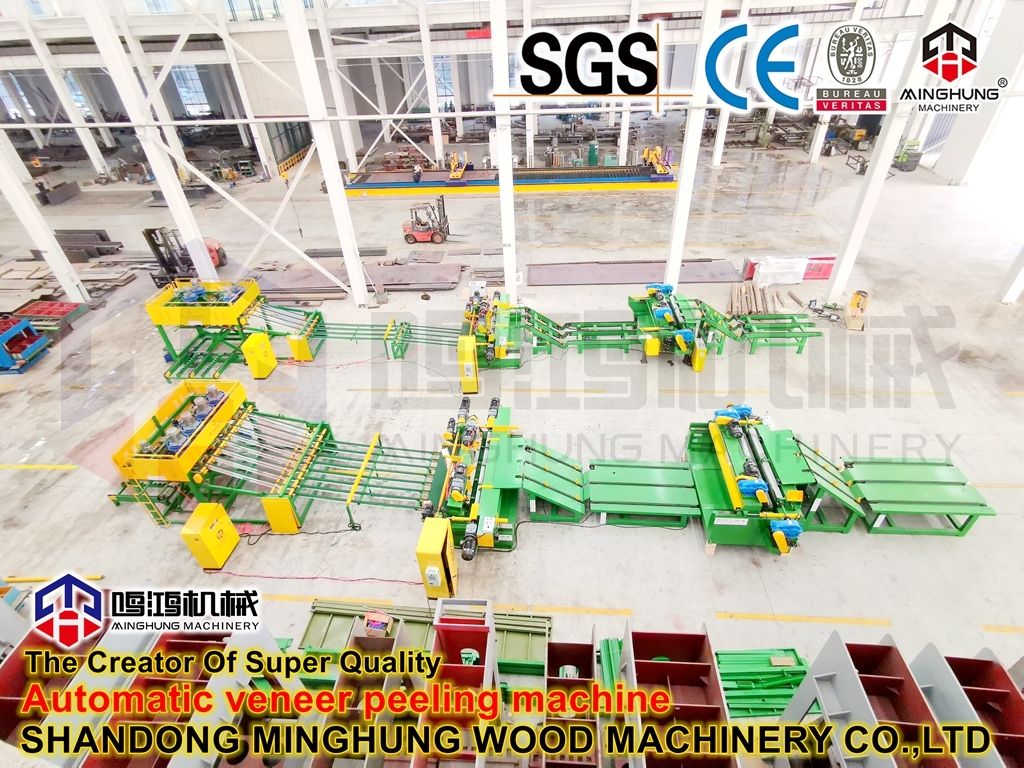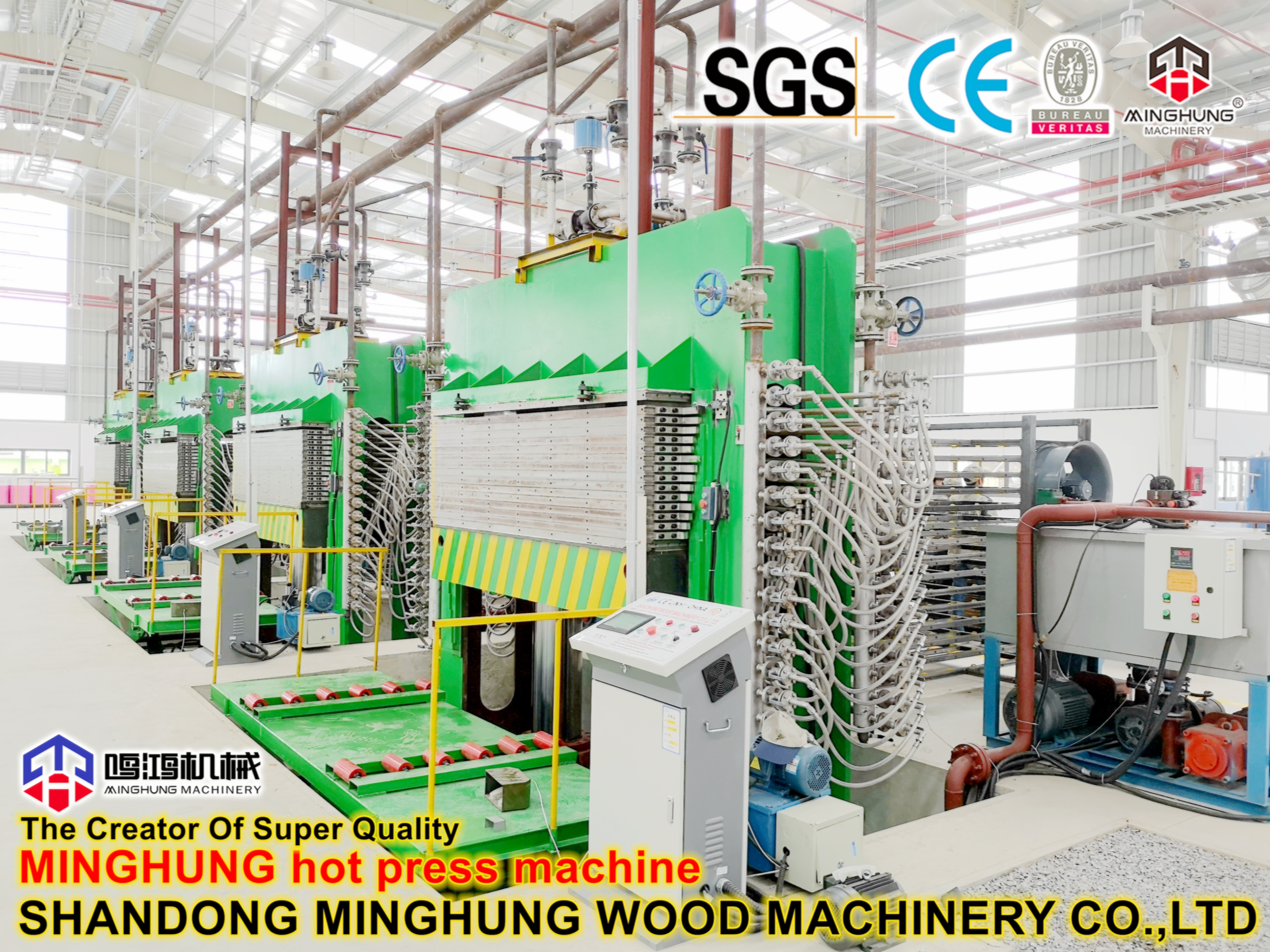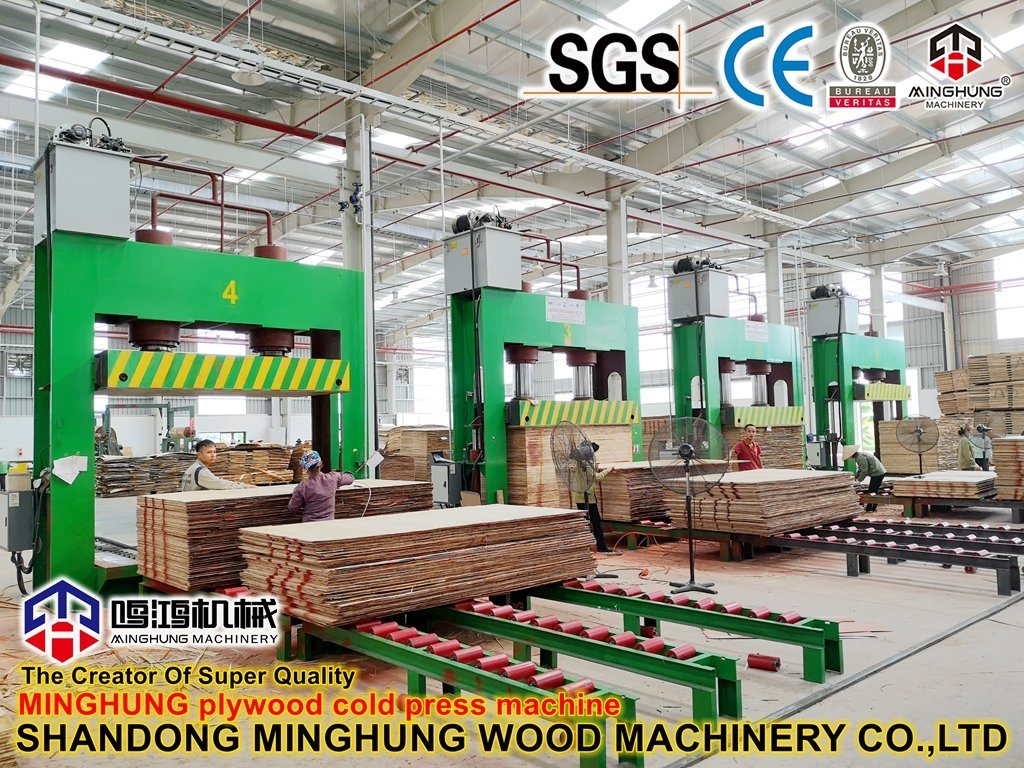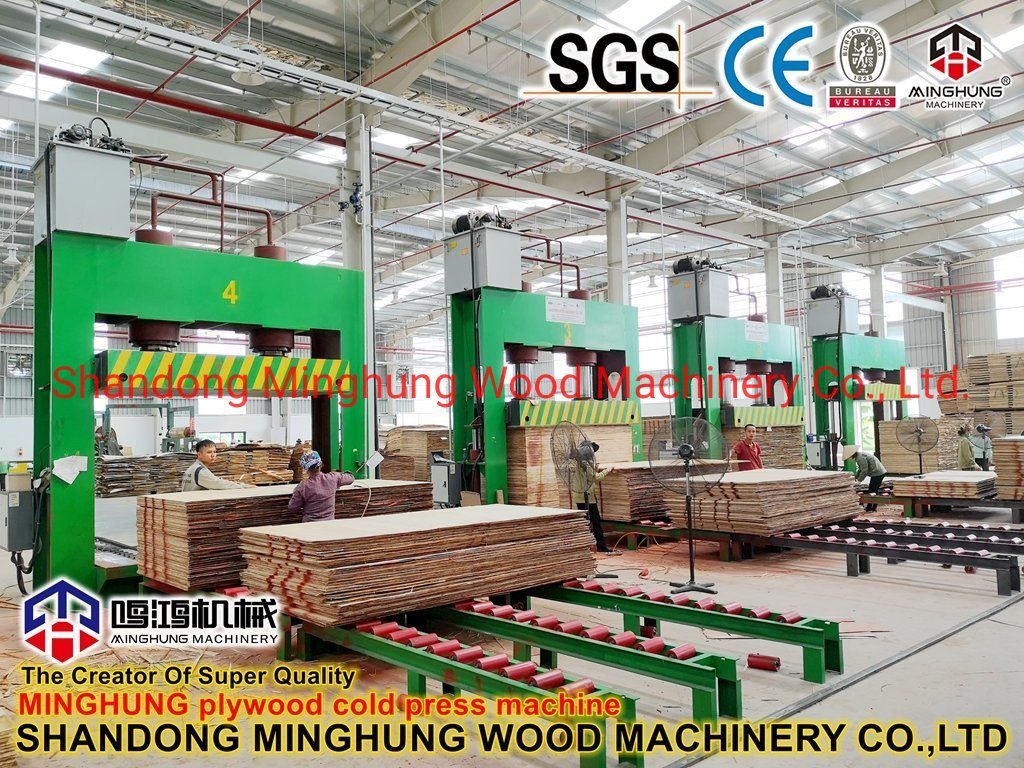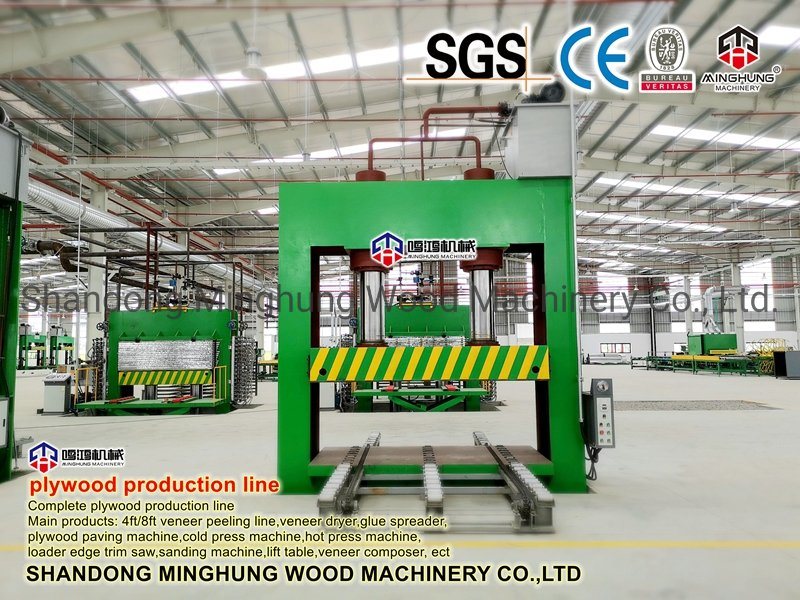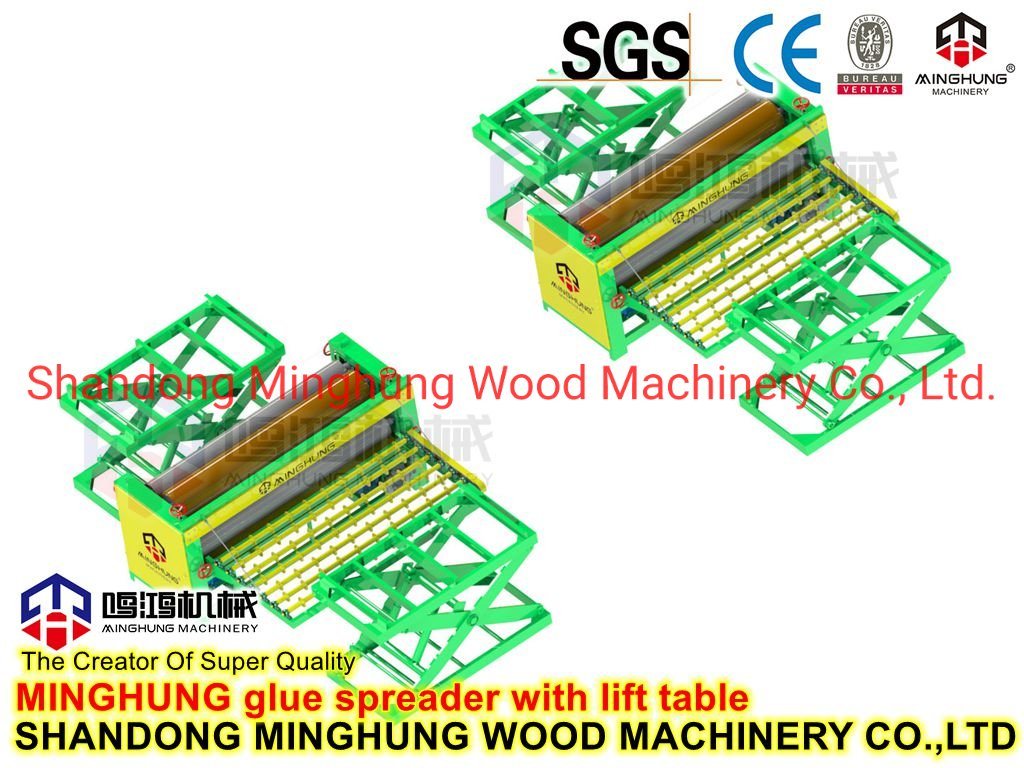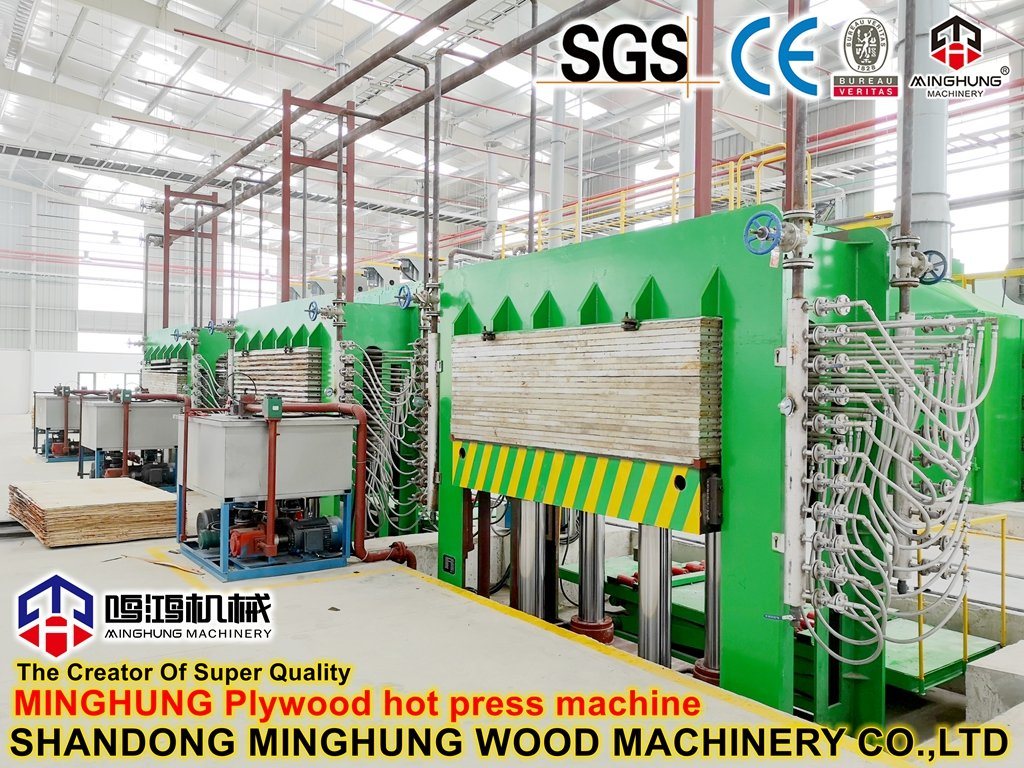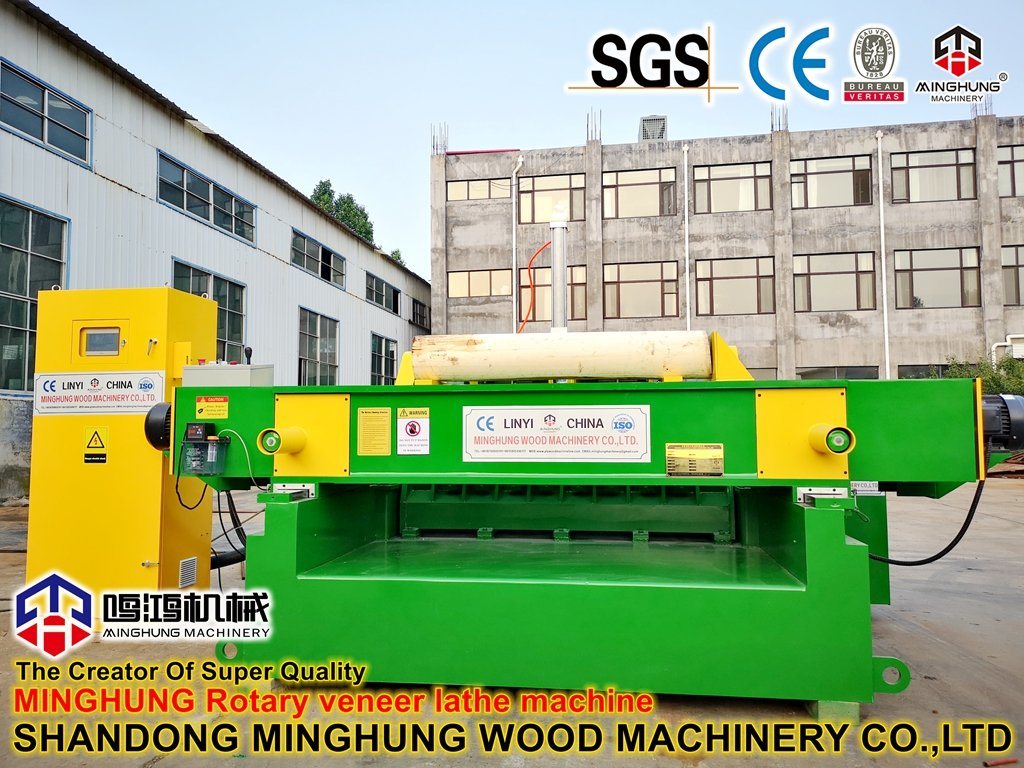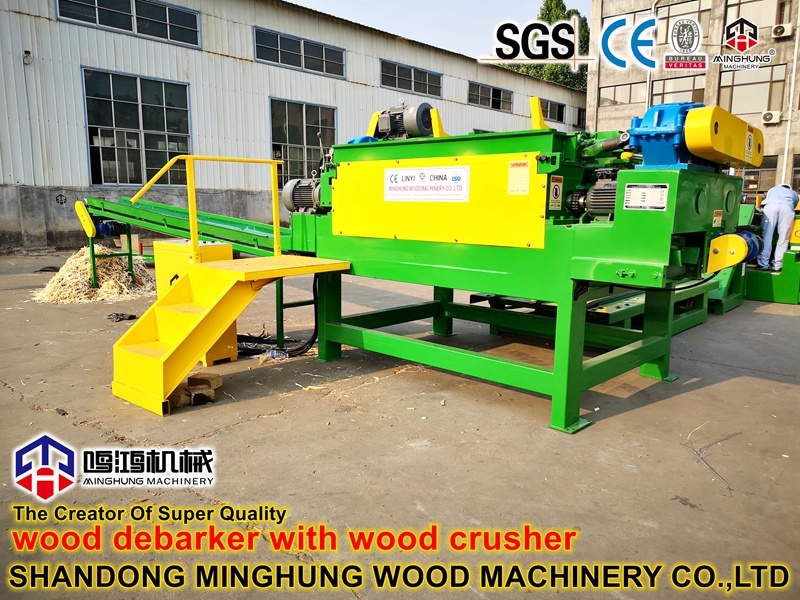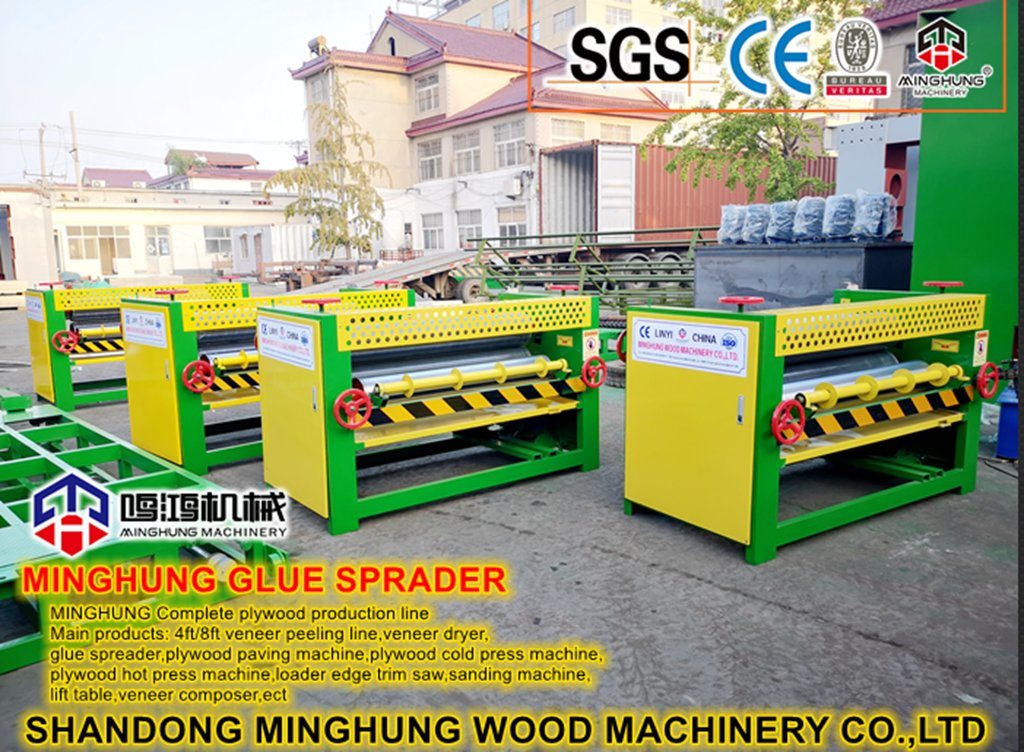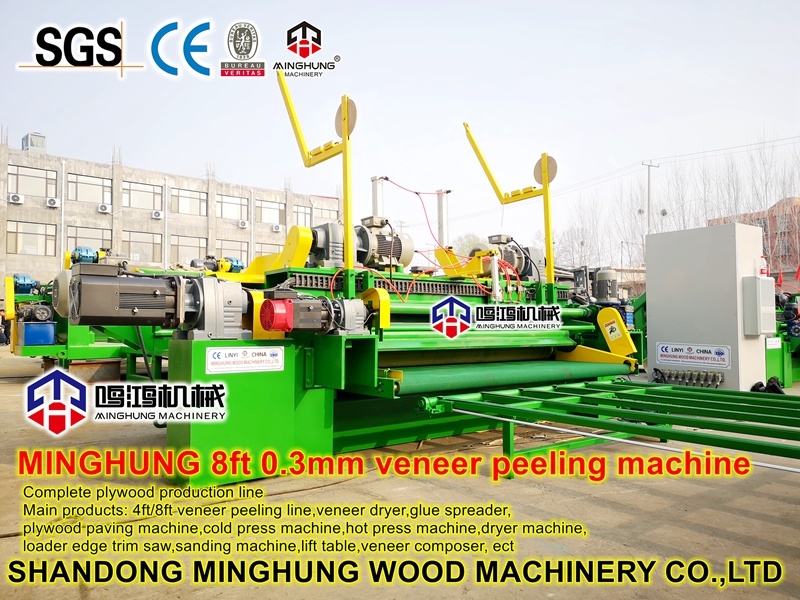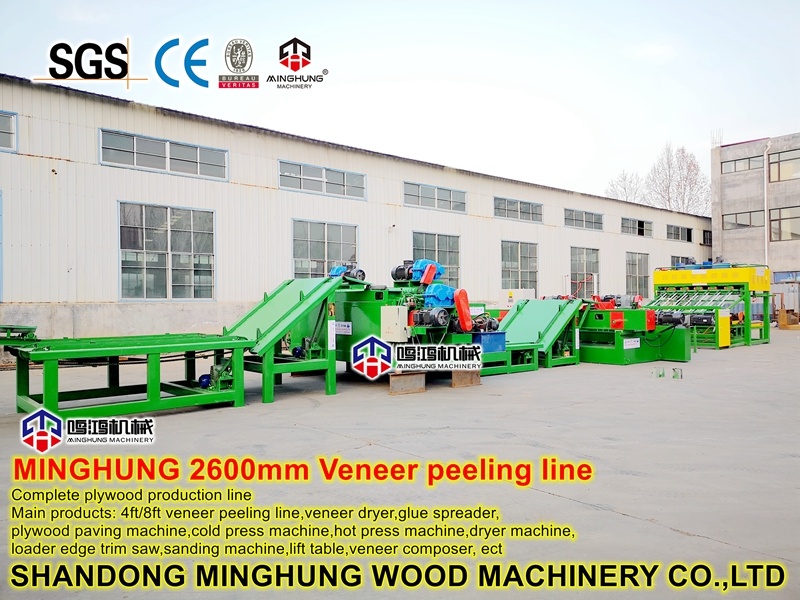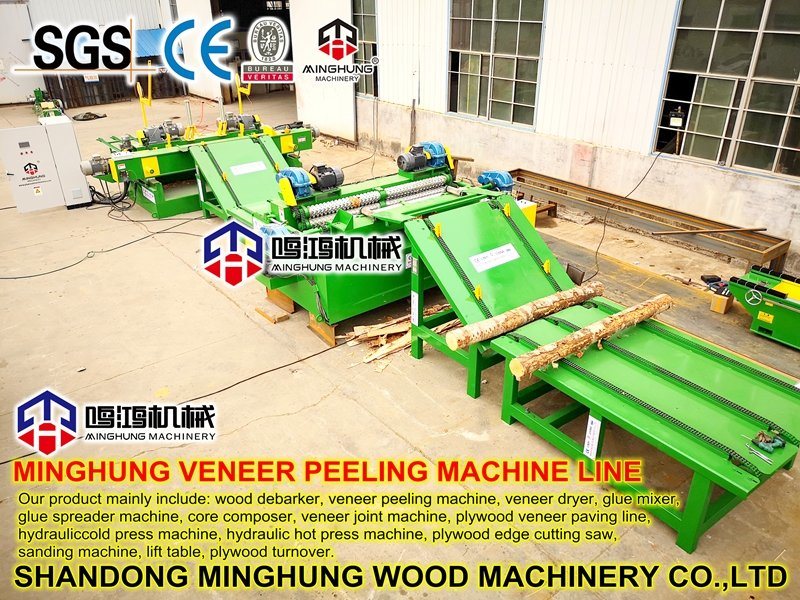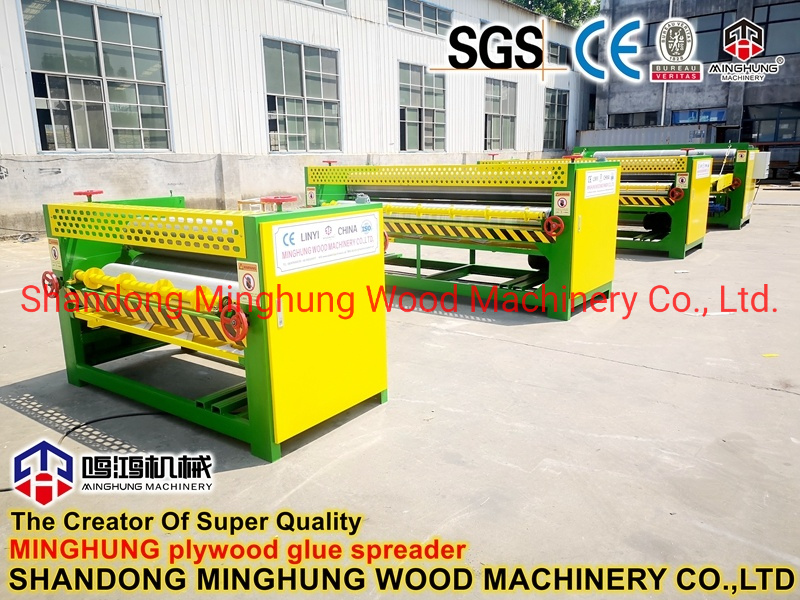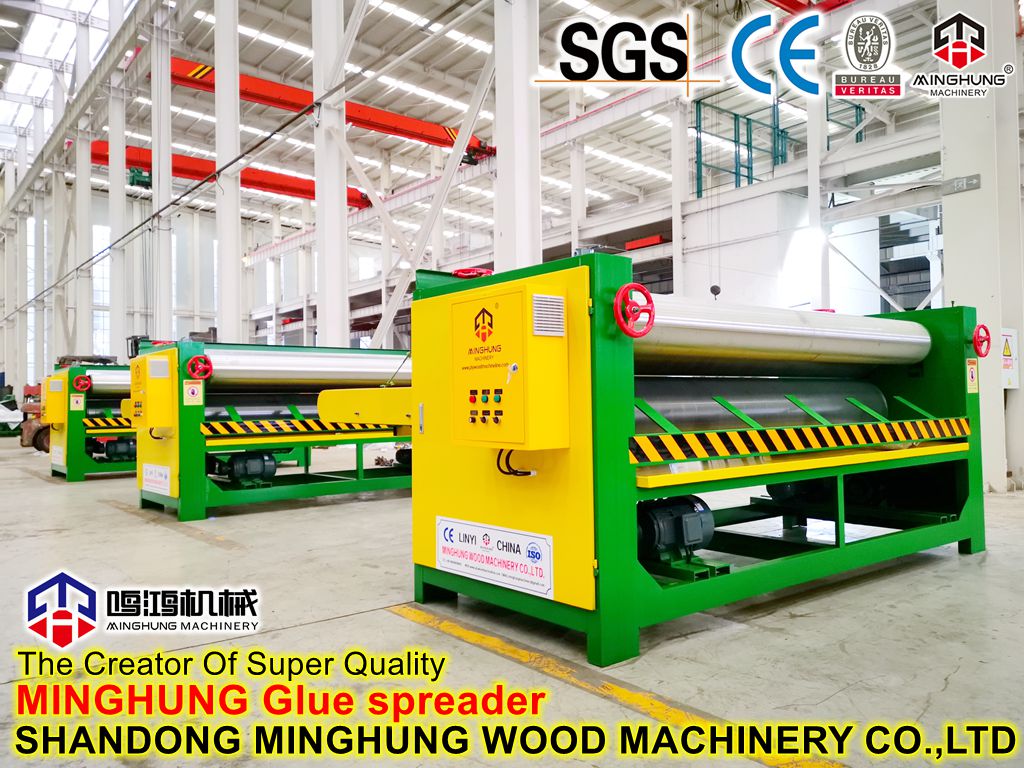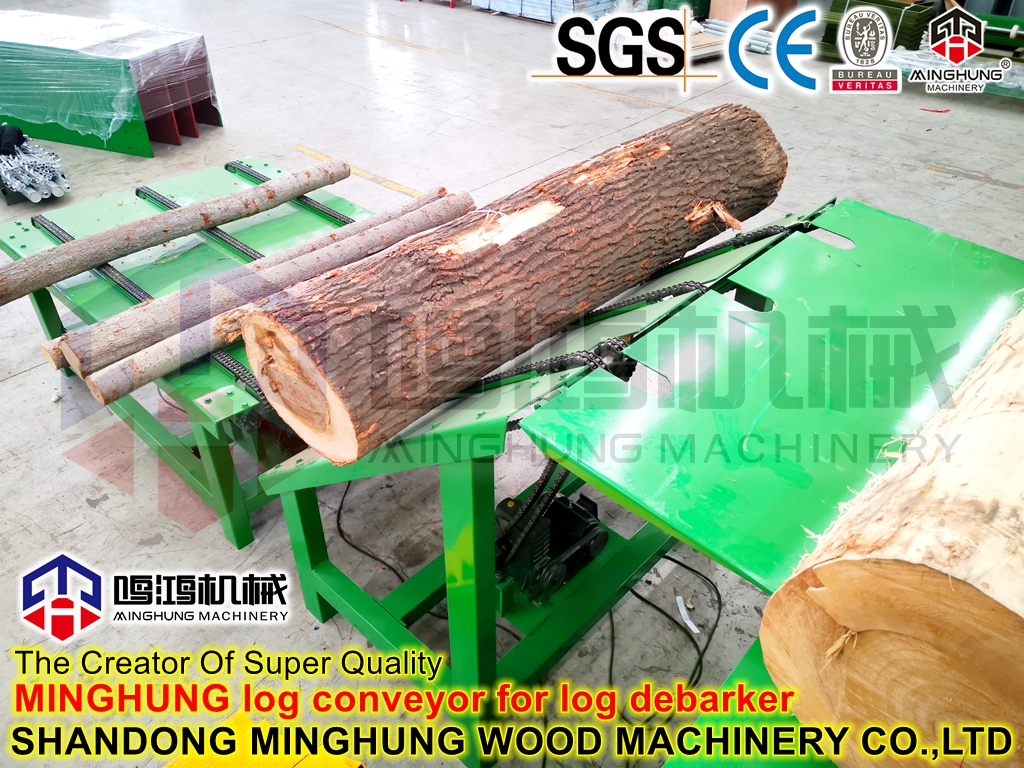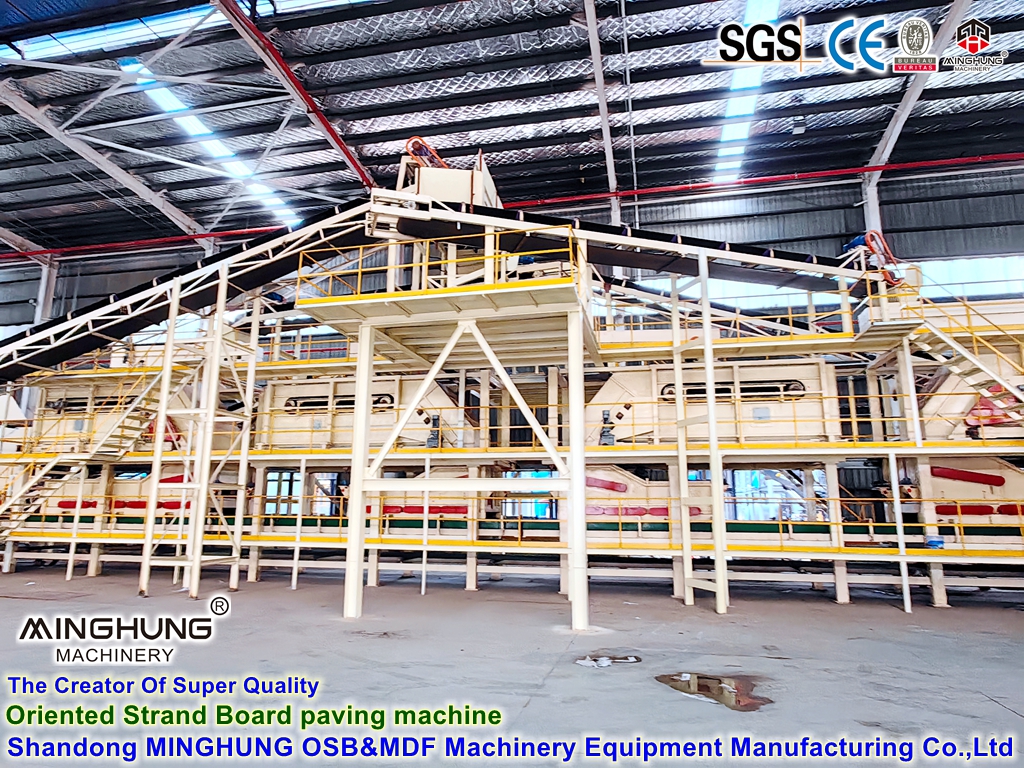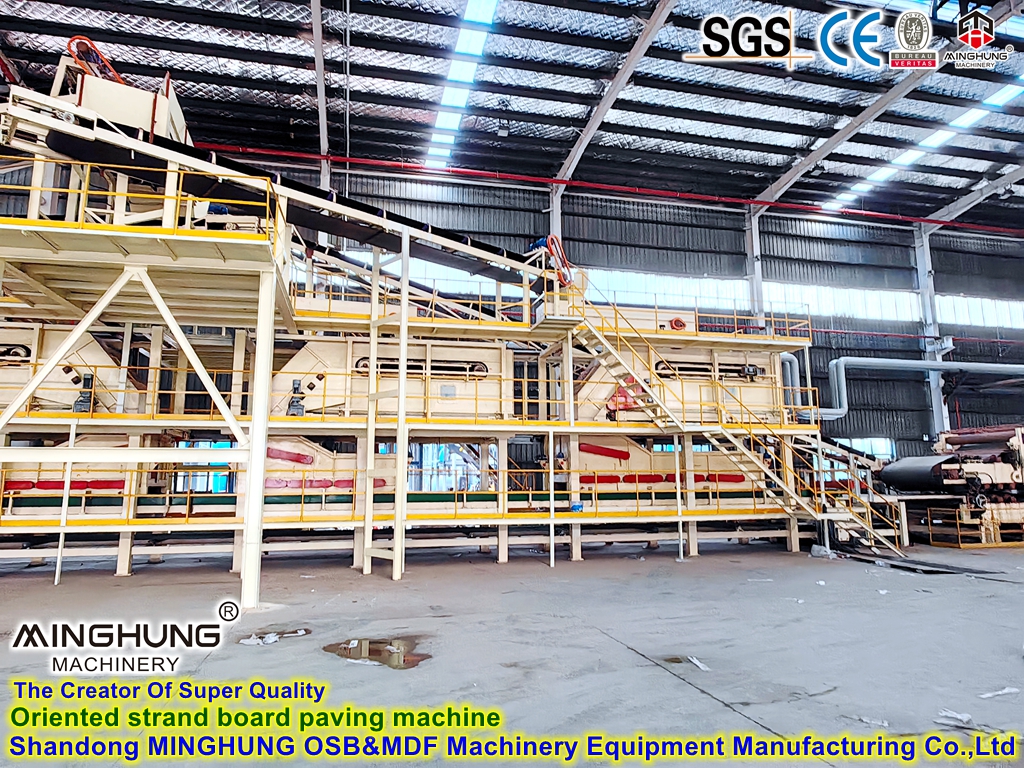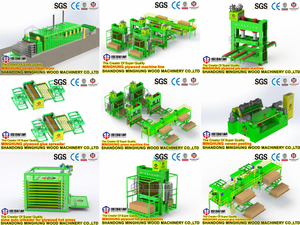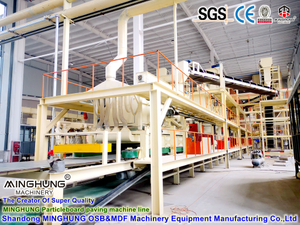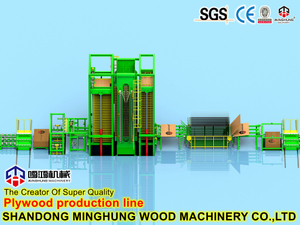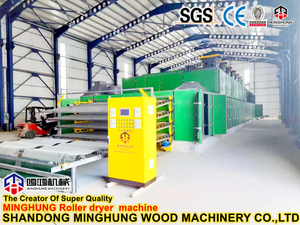Ⅱ. Core Components of Continuous Press Production Line
1. Raw Material Preparation Section:
Log Handling: Debarking, bucking (removing defects, optimizing length).
Stranding/Flaking: Processing logs into wood strands (flakes) meeting specific requirements.
Strand Screening and Sorting: Removing oversized, undersized strands, and impurities; grading strands by size (typically different sizes for surface and core layers).
Strand Drying: Drying strands to target moisture content (usually core slightly higher than surface) using drum dryers, etc., preparing for pressing.
Strand Storage: Temporary storage of dried strands in silos.
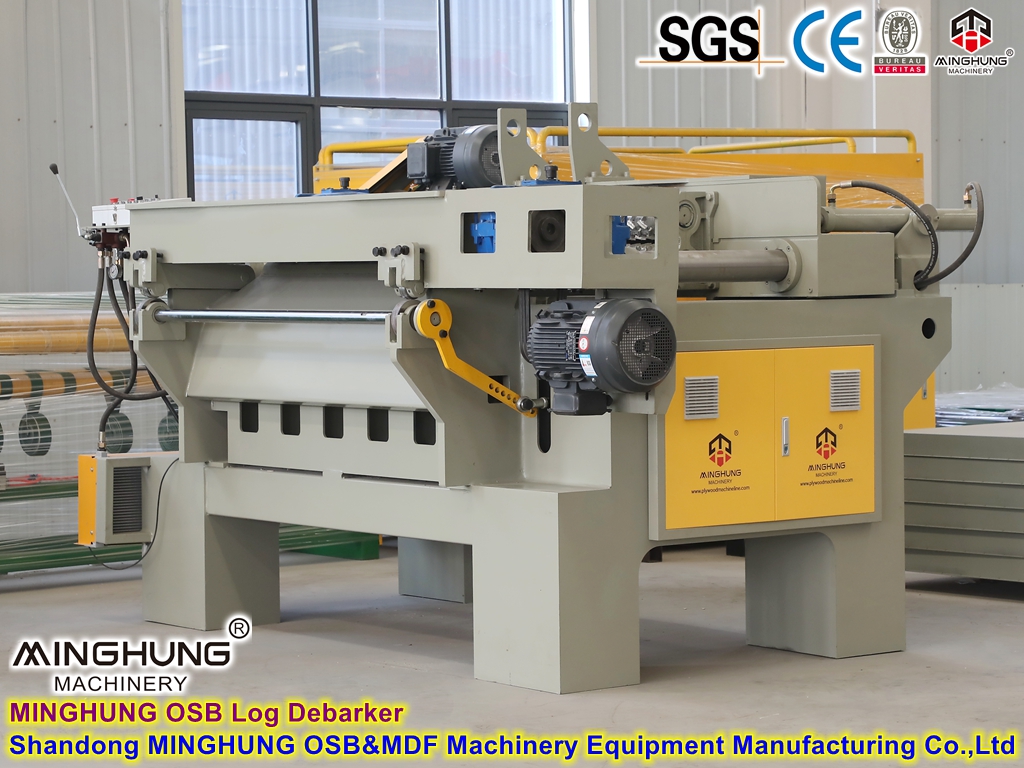
Log debarker
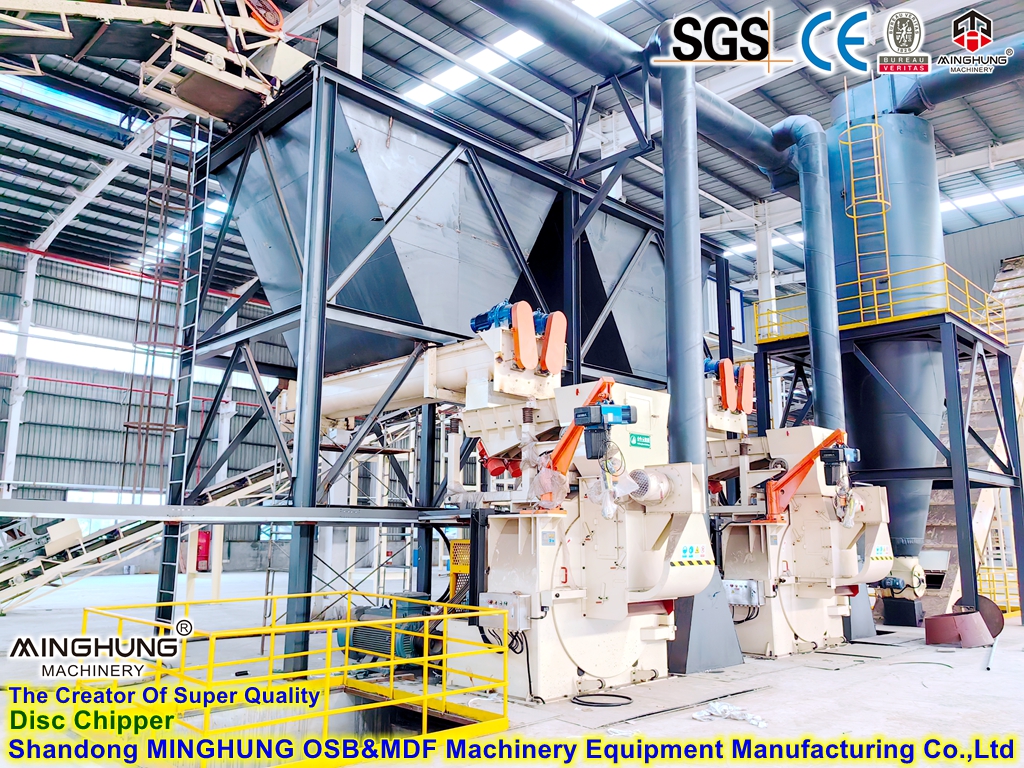
Chipper

Vibraing screen
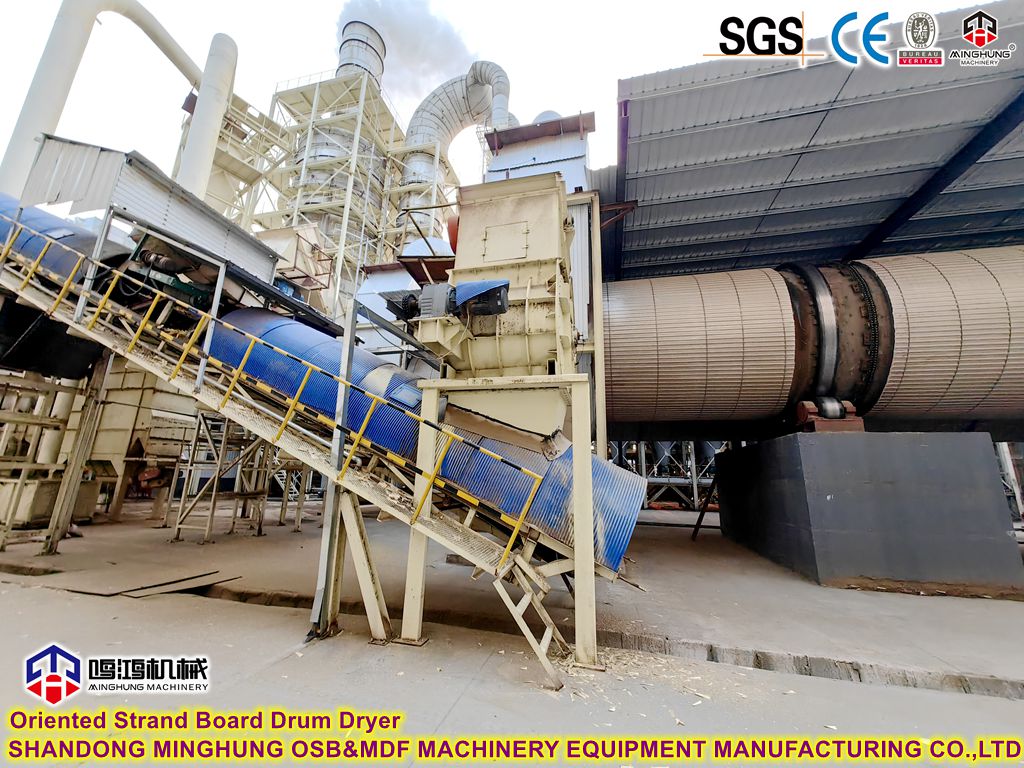
Drum dryer
2. Blending and Forming Section (Critical Stage):
Blending: Feeding dried strands into blenders for uniform mixing with resin binders (typically MDI or Phenolic resin), wax, release agents, catalysts, and other additives. Uniformity and precision of blending are crucial.
Forming: One of the core characteristics of OSB production. The forming machine layers the blended strands into a continuous mat according to preset directional angles (typically longitudinal for surfaces, transverse or random for core).
Oriented Forming: Achieved through specialized throwing rolls, air streams, or mechanical orienting devices to directionally align the strands. This is key to giving OSB its anisotropic properties (different strengths in different directions).
Multi-Layer Structure: Typical OSB has a three or four-layer structure (e.g., surface longitudinal - core transverse - surface longitudinal OR surface longitudinal - core transverse - core transverse - surface longitudinal).
Mat Pre-Pressing: The loose formed mat passes through a pre-press for cold compaction. This increases density for easier transport and removes some air.
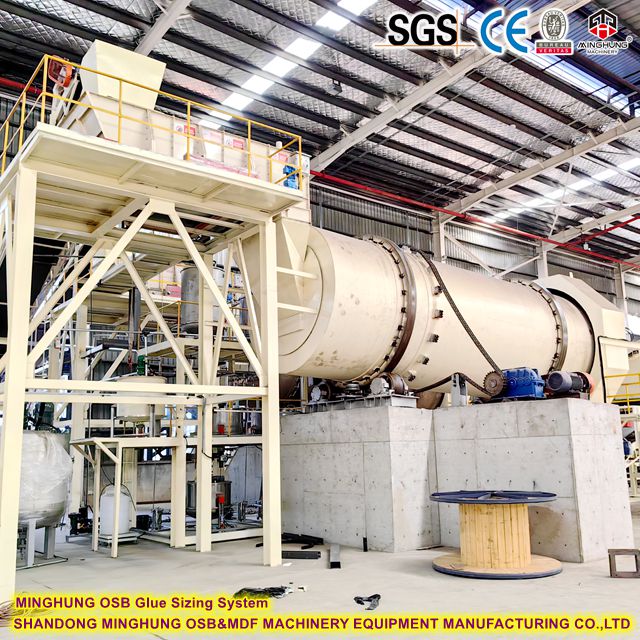
Glue sizing system
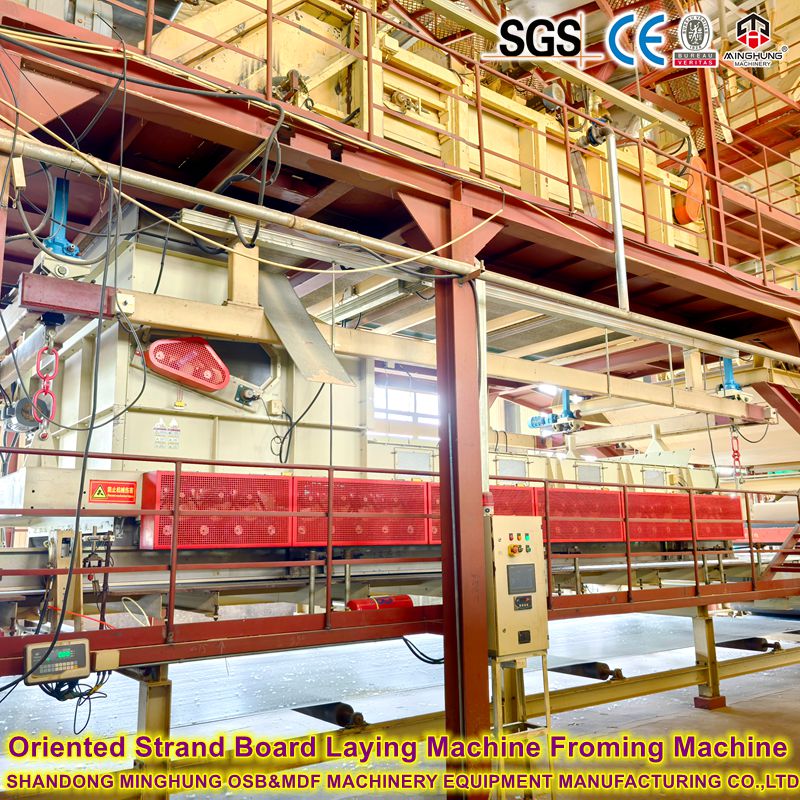
mat forming machine
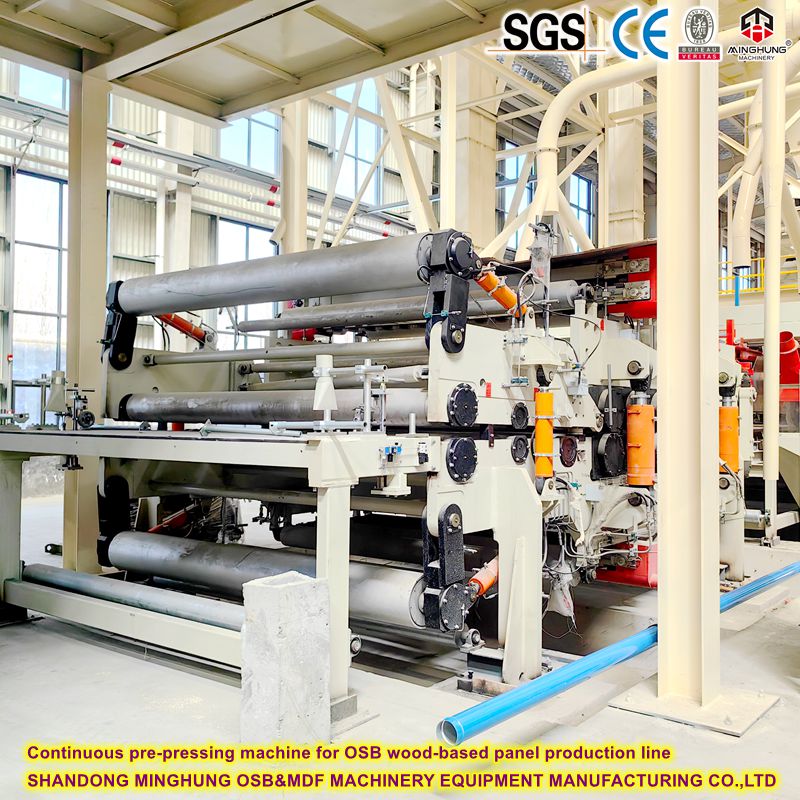
pre press machine
3. High-Speed Continuous Hot Pressing Section (Core Equipment):
Continuous Press: The "heart" of the production line. The primary type is the Steel Belt Continuous Flat Press.
Working Principle: The pre-pressed mat enters continuously into the press inlet formed by upper and lower high-temperature (typically 180-220°C), high-strength steel belts. The belts move continuously, driven by rolls.
Pressurization System: Numerous (tens or even hundreds) hydraulic cylinders (or press rolls) within the press frame apply pressure uniformly via press plates (or rolls) onto the steel belts, which act on the moving mat. The pressure profile (high at entry, holding in middle, lower at exit) is precisely controlled by a complex hydraulic system.
Heating System: Hot oil (or steam) circulates within heating platens inside the press, transferring heat to the steel belts and then to the mat, curing the resin.
High-Speed Manifestation: Steel belt speeds can reach 1000 mm/s and above, or even higher (depending on product thickness and process requirements). Speeds are especially high for thin panels (e.g., 9mm).
Advantages:
Ultra-High Productivity: Multiple times, even ten times or more, the output of batch presses. Single-line annual capacity can reach 300,000 cubic meters or even over 500,000 cubic meters.
Uniform and Stable Product Quality: Continuous, stable pressing and heating result in superior panel flatness, thickness tolerance, and density distribution.
High Level of Automation: Easily integrated into automated production lines.
Relatively Lower Energy Consumption (Per Unit Product): Efficient heat utilization and continuous production mode.
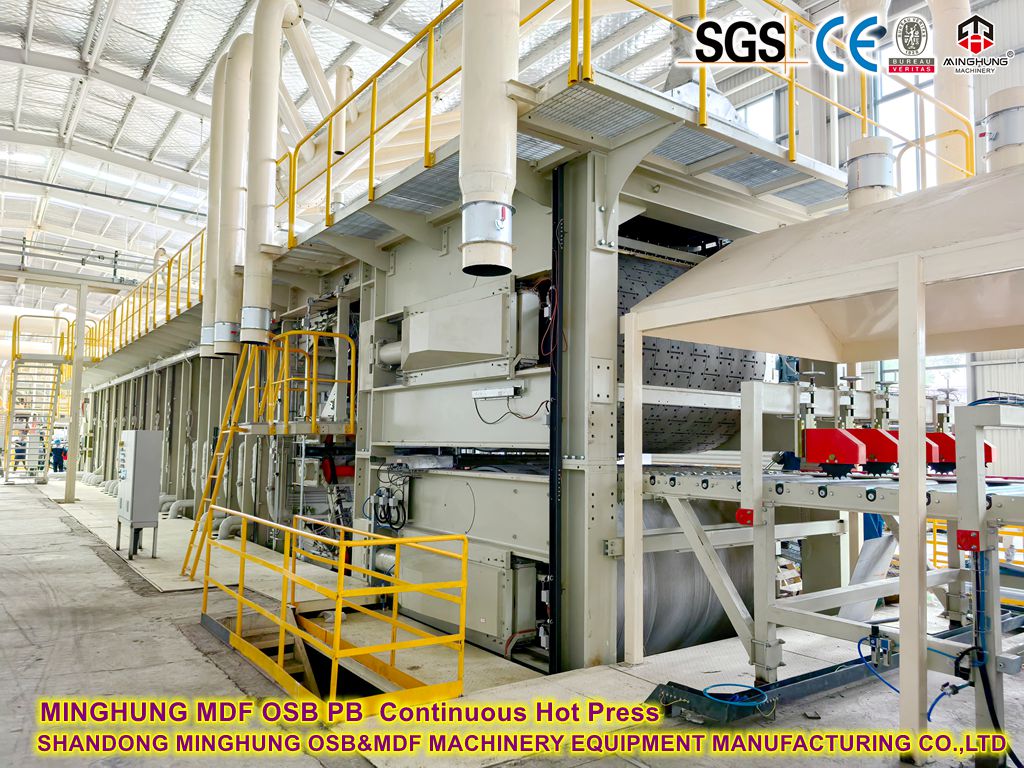
4. Finishing Section:
Cooling: Panels exiting the press are very hot. They enter star coolers or roller coolers for forced cooling to stabilize dimensions and prevent warping.
Trimming and Cross-Cutting: The cooled continuous panel strip is precisely trimmed longitudinally and cut to length transversely by sawing equipment.
Stacking: Cut panels are automatically stacked into bundles.
Sanding: Sanding panel surfaces to achieve target thickness tolerance and surface smoothness (some OSB lines may omit this step, producing unsanded board).
Inspection and Packaging: Quality inspection, followed by packaging and labeling.
Warehousing: Finished goods storage.
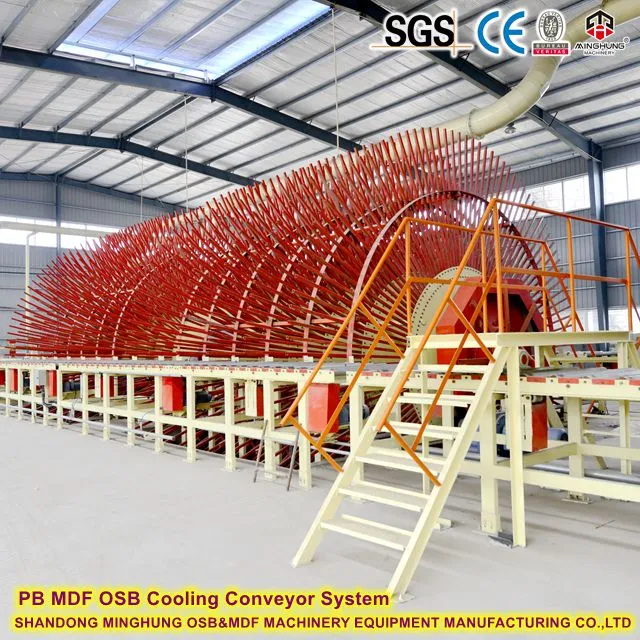
Cooling conveyor system
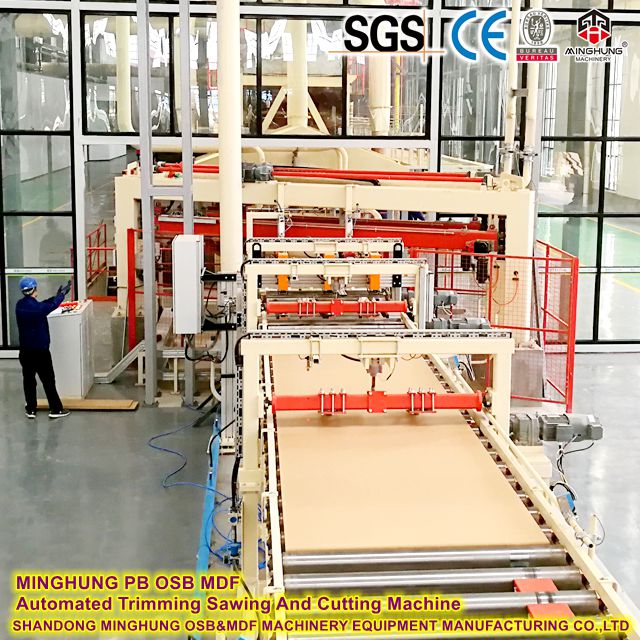
Dryer rack
Ⅲ. Key Advantages of Continuous Press Lines
1. Extremely High Production Efficiency: Continuous operation eliminates non-productive time, forming the basis for meeting large-scale market demand.
2. Exceptional Product Quality: Small thickness tolerances, uniform density distribution, high panel flatness, stable and excellent physical-mechanical properties (thanks to precise oriented forming and continuous, stable hot pressing).
3. Excellent Cost-Effectiveness: Despite massive equipment investment, the ultra-high single-line capacity significantly amortizes depreciation, labor, and energy costs per unit product.
4. High Degree of Automation and Intelligence: The entire line, from raw material preparation to stacking, can achieve a high level of automated control. Advanced sensors and control systems (e.g., PLC, DCS) enable precise monitoring, optimization, and traceability of process parameters.
5. Flexibility (Relative): Modern continuous presses can adapt, within a certain range, to produce different thicknesses, densities, and specifications of OSB by quickly changing belts and adjusting process parameters (changeover times still need optimization).
Ⅳ. Technical parameters for OSB high-speed continuous presses
Core Physical Parameters
1. Useful Width
Range: Typically 2.5m – 4.5m (high-end models can exceed 5m)
Determining Factor: Determines the width of the finished panel (standard panel widths like 1220/1250mm require matching press width).
2. Total Length
Range: 30m – 60m+
Function: Length determines the hot pressing/curing time, directly impacting production speed and the range of achievable product thicknesses.
3. Steel Belt Speed
Typical Range: 500 – 1500 mm/s
High-Speed Scenario: Can exceed 1000 mm/s when producing thin boards (e.g., 9mm); speed decreases to 200-400 mm/s for thick boards (e.g., 25mm).
Process Capability Parameters
4. Product Thickness Range
Standard Coverage: 6mm – 40mm
Special Models: Can be extended to 4mm (ultra-thin) or 50mm (extra-thick structural board).
5. Maximum Working Pressure
Typical Value: 3.0 – 5.0 MPa (some heavy-duty presses can reach 6 MPa)
Control Accuracy: ±0.1 MPa (achieved through zoned hydraulic systems enabling gradient pressure control).
6. Heating Temperature Range
Resin Compatibility: 180°C – 240°C
Common Intervals: MDI resin: 190-210°C; Phenolic resin: 210-230°C.
7. Hot Pressing Time (Dwell Time)
Calculation: Press Length / Belt Speed
Example: 40m press + 800 mm/s speed → 50 seconds (typical for 12mm board).
Performance Indicators
8. Design Capacity (Annual Capacity)
Single-Line Capacity: 300,000 – 600,000 m³/year
Calculation Basis: Example for 12mm board, 700 mm/s speed, 4m width:
Capacity = Speed × Width × Density × Annual Operating Hours × Efficiency
≈ 700 mm/s × 4000 mm × 650 kg/m³ × 7200 h × 0.85
≈ 450,000 m³/year
9. Thickness Tolerance
Industry Standard: ±0.15mm – ±0.3mm (superior to ±0.5mm of batch presses).
10. Energy Consumption Indicators
Steam Consumption: Approx. 600 – 900 kg/m³ (including drying + pressing)
Electricity Consumption: 35 – 60 kWh/m³ (whole line comprehensive).
Key Subsystem Parameters
Subsystem | Parameter Example | Technical Significance |
Hydraulic System | Number of Pressure Zones: 20-50 | Enables gradient pressing, optimizes core curing |
System Pressure: 25-35 MPa | Ensures high-pressure uniformity |
Steel Belt Specs | Thickness: 1.8 – 2.5mm | Tensile Strength ≥ 1200 N/mm² |
Surface Hardness: HRC 45-50 | Wear and deformation resistance |
Heating System | Heat Transfer Medium: Thermal Oil (max 300°C) | More stable than steam |
Temperature Control Accuracy: ±1°C | Ensures consistent resin curing |
Drive Power | Main Drive Motor: 800 – 1500 kW | Supports high-speed operation |
The history of our company
2007-2010
2007 -Our factory started to manufacture the full sets of OSB、PB、MDF Production line.
2013
Shandong Hungyou intelligent Equipment Industry ResearchCo..Ltd established, for plywood machinery and OSB、PB、MDF machinery research and development.The main research direction is to realize the automation of Plywood machinery.
2015
Linyi Ming Hung Trade Co.,Ltd established, the development focus has began to Foreignmarket, to service more foreign customers.
2017
Our High-end brand -ShandongMinghung OSB&MDF Machinery Equipment Manufacturing Co..Ltd established, mainly for foreign customers make the whole plant planning and design,achieve comprehensive high-end automation.
2018
Our High-end brand -Shandong MingHung Wood Machinery Co..Ltd established, mainly for foreign customers make the whole plant planning and design,achieve comprehensive high-end automation.
2022
Our factory's overseas business achieved significant growth,shipped machines to many different countriesl,ike America,Mexico,Columbia,Russia,Indonesia,Vietnam,Malaysia,Thailand,Egypt, TurkishUkraine, Romania, Portugal, Africaand others.
2024
We continue to adhere to the strategy of going global,to become one World brand.
We specialize in manufacturing thecomplete production line of Medium density fiberboard (MDF), High densityfiberboard (HDF),Particle board (PB), Oriented strand board (OSB), andVeneerable super strong particle board (LSB).
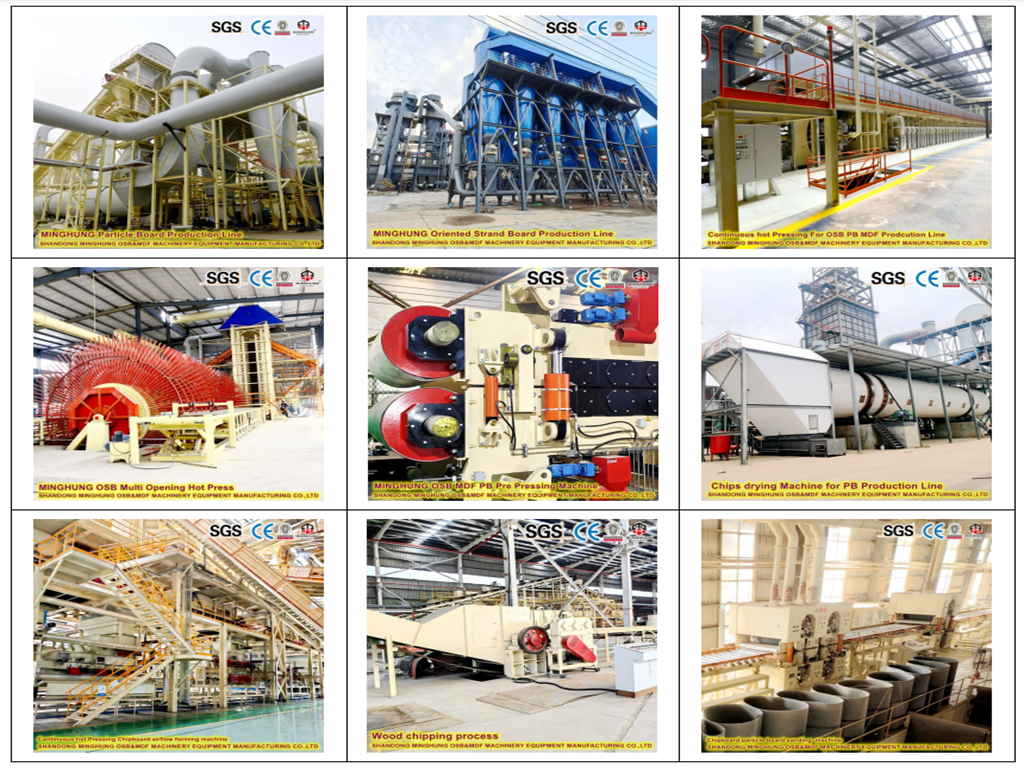
Claim Your Free OSB Line Layout! Get end-to-end plant design from strand preparation to sanding. Receive 3D factory plan within 30 days.
Our contacts:
Whatsapp: +8618769900191 +8615589105786 +8618954906501
Email: osbmdfmachinery@gmail.com

